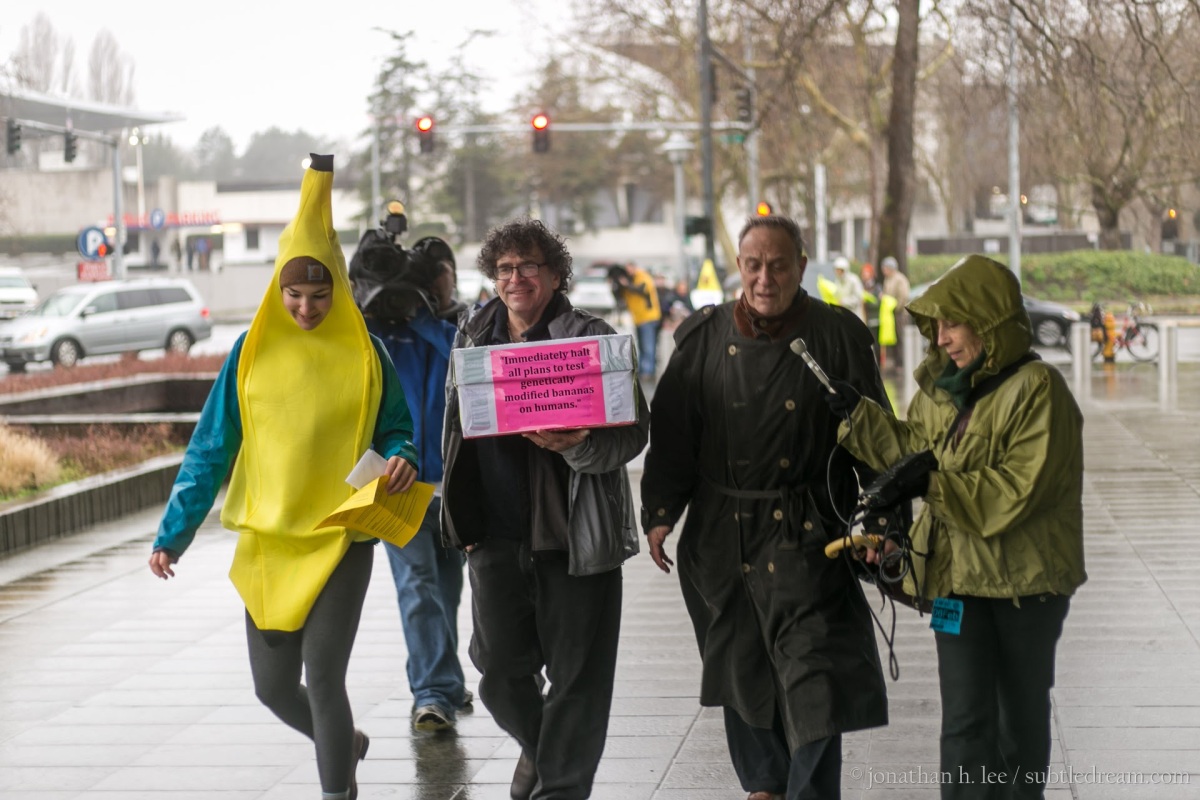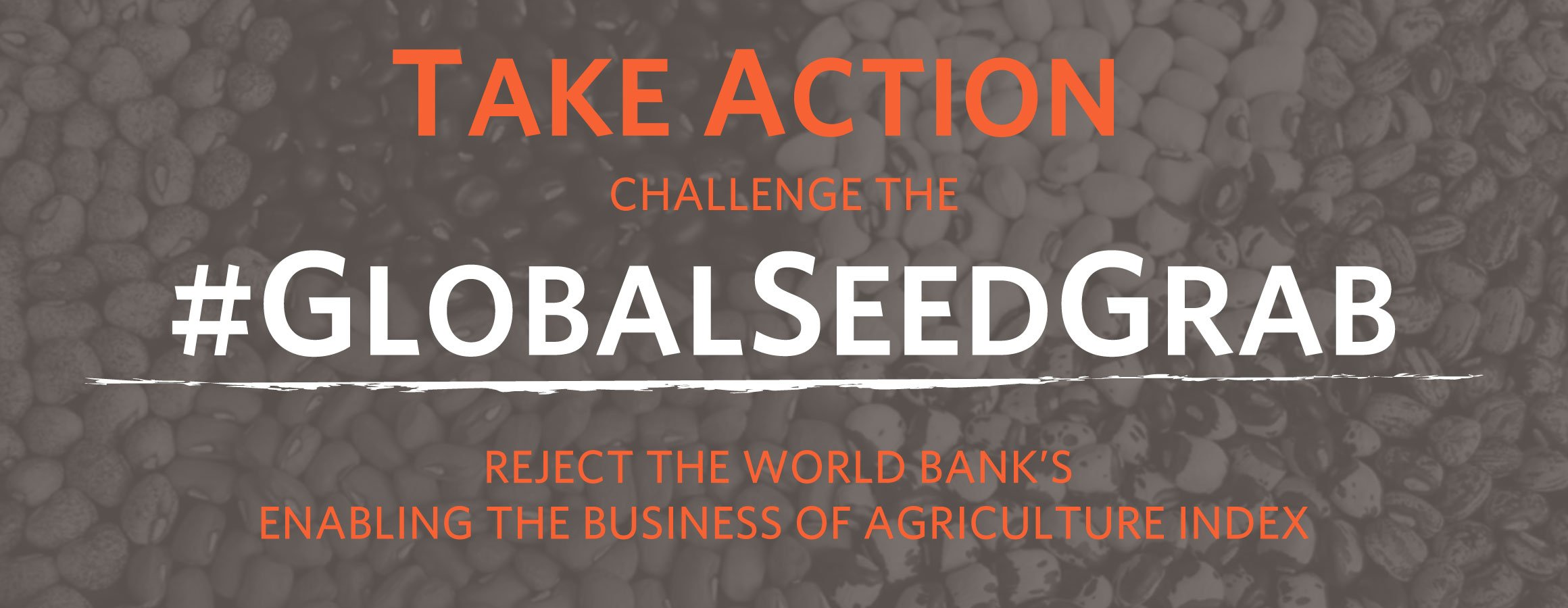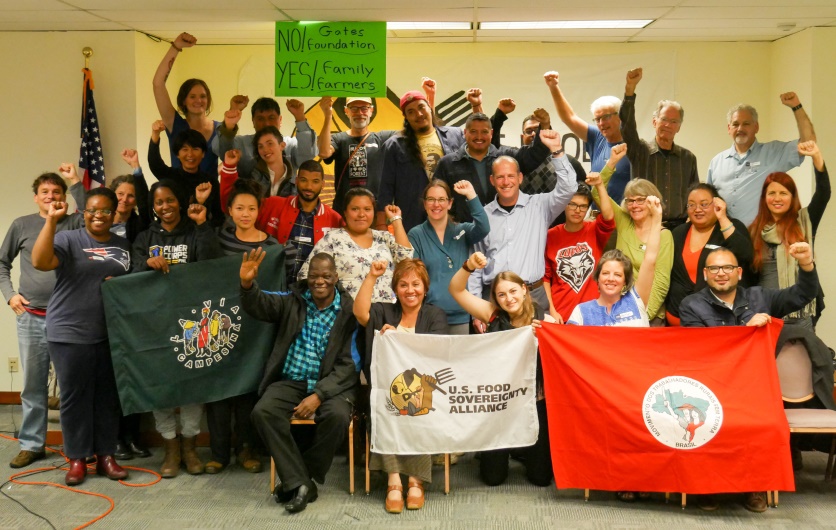Hands Off African Seeds! – No Intellectual Property on Life
The Alliance for Food Sovereignty in Africa (AFSA) today launches a continental seed policy report challenging the corporate capture of African farmers’ seeds and seed systems. Launched on World Intellectual Property Day, the report documents the policy shift towards corporatization of seeds on the continent, in direct contravention of international obligations to protect farmers’ rights and to conserve agricultural biodiversity. It shows how these dangerous policies are rapidly advancing and how farmers are resisting. The report entitled ‘Resisting corporate takeover of African seed systems and building farmer managed seed systems for food sovereignty in Africa’ maps the way forward for building a continental movement to Save African Seeds.
Zimbabwean farmer and La Via Campesina General Coordinator, Elizabeth Mpofu said, “Regional bodies like SADC and COMESA are developing rules that will increase the availability of commercial seeds, only benefiting corporations like Syngenta and Monsanto. Indigenous seeds are not recognized. We believe in controlling our land and seeds and producing the healthy food that we want, the way we want. Our response is to fight for food sovereignty against these transnational corporations.”
The race to capture the intellectual property rights of seeds is at the heart of the problem, with the African Regional Intellectual Property Organization (ARIPO) in the driving seat. Civil society organizations around the world agree that there should be no intellectual property on life, yet the seed giants are using African regionalization policy processes to grab the IP rights to farmers’ seeds and planting material, and criminalize farmers traditional practices.
African agriculture policy is increasingly about ‘modernization’ through a massive increase in the use of chemical fertilizers and ‘improved’ seeds, switching the focus to staple crops and commodities tradable on global markets. In practice, this has led to a huge concentration on the development and marketing of hybrid maize seeds and artificial fertilizers.
The reality is that 90% of seeds sown in Africa come from ‘informal’ sources, local markets, or seeds saved by farmers or their neighbors – the majority of whom are women. It is these seeds that are providing 80% of Africa’s food. They are reliable, available and affordable, but the seed giants want them outlawed. These seeds and the cultural systems and knowledge that underpin them are under threat from policies designed to privilege corporate seed systems while criminalizing and vilifying farmer managed seed systems.
“The answer to seed sovereignty is not in the hands of corporates, but in the hands of smallholder farmers who feed the world,” said Peter Nzioka, Kaane Small Scale Farmers Association, Machakos, Kenya.
The Alliance for Food Sovereignty in Africa calls on African nations to wake up to the dangers of these flawed policies; to scrap the externally-driven and damaging seed laws; and to recognize that the future of African food systems lies in supporting African food producers to provide sustainable African solutions.
The seed policy report ‘Resisting corporate takeover of African seed systems and building farmer managed seed systems for food sovereignty in Africa’ is available as a free download here.
# # #
For further information or interviews please contact:
Dr. Million Belay – AFSA Coordinator
Email: million.belay@afsafrica.org, afsa@afsafrica.org



.jpg)




